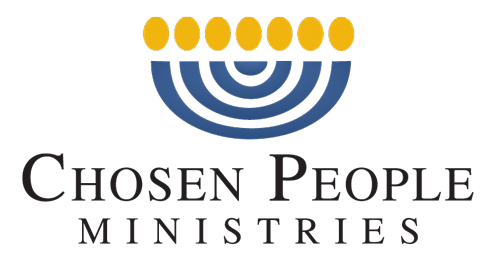Dear friend,
Shalom and a Merry Christmas and Happy Hanukkah to you!
We celebrate two great festivals of deliverance and joy during December. One of the holidays is observed by Christians and the other by Jewish people. There is some crossover today as, once in awhile, I find a Christmas tree capped with a Jewish star or see a Jewish person with a Hanukkah bush in their home!
Sometimes this is done to ease the tension of a mixed marriage by bringing the holidays together for the sake of the children. Rarely is there recognition that, at its root, Christmas is a Jewish holiday and Hanukkah finds its ultimate fulfillment in Yeshua, the Messiah, and Light of the world.
Believe me, it is not easy to persuade the most ardent adherents that the above is true, but when recognized, it brings a greater delight and joy to each of the holidays. Let me explain by reminding us of the story of both holidays, beginning with Christmas.
The Christmas Story Begins in the Book of Genesis
Where does the Christmas story begin? Most people would answer correctly—in the Bible. However, they would begin the story with the wrong Testament by jumping right in with the birth of the Messiah! The story, in fact, begins much earlier. The story of Christmas begins in the Old Testament as far back as the book of Genesis. The first promise of a redeemer is found in Genesis 3:15:
“And I will put enmity between you and the woman, and between your seed and her seed; He shall bruise you on the head, and you shall bruise him on the heel.”
Moses tells us that God would one day deliver mankind from sin and death, from disobedience, and from all the evil and human hardship that came about as a result of the fall of Adam and Eve. This deliverance would come through the seed of the woman who, in the process of destroying the serpent, would bruise his heel—not with a mortal wound but painful nonetheless.
The wounding of this son of Eve points to Jesus who bore our sin. He was born of a woman, innocent, perfect, and without sin. His death may be viewed like the bruising of the heel, painful but not fatal since He rose from the dead. In Yeshua’s rising from the dead, He proved that the God of Abraham, Isaac, and Jacob had accepted His sacrifice for sin. Later on, in Isaiah 53, we read these words,
“All of us like sheep have gone astray, each of us has turned to his own way, but the Lord has caused the iniquity of us all to fall on him.”
We are all sinful and we all need a Savior. We are unable to save ourselves because we have inherited the disobedient nature of our “parents,” Adam and Eve. All praise be to God who sent His Son to die as the solution for our sins—for both forgiveness and transformation!
This glorious story of redemption begins with the first sin because God’s grace has been available from the very start to all those who would receive it! The drama of redemption unfolds throughout the Old Testament Scriptures.
In Genesis 12, we discover that God calls an elderly couple, Abraham and Sarah, to be His bridge of grace to a broken and sinful world. Their descendants, the Jewish people, were chosen for the sake of those who were not part of their own community and who ultimately would be used by God to bless the world: “And I will bless those who bless you, and the one who curses you I will curse. And in you, all the families of the earth will be blessed” (Genesis 12:1-3).
Eventually, these blessings to the world would come through one descendant of Abraham, the Messiah Jesus, and through Him, the world would receive the blessings of redemption.
But, how would the one promised in Genesis 3:15 be recognized? The Scriptures begin filling in His qualifications. The first one is that He would come from one particular tribe of Israel. He would be from the tribe of Judah, the fourth-born son of Jacob. As Moses describes, “The scepter shall not depart from Judah, nor the ruler’s staff from between his feet, until Shiloh comes, and to him shall be the obedience of the peoples” (Genesis 49:10).
Even the rabbis of old recognized that the name Shiloh was a reference to the Messiah and Redeemer promised to Israel and the nations. These promises shaped the expectations of the Jewish people so that when the Messiah came He would be recognized by His people.
The qualifications for the Messiah continue as the Bible tells us that He would also be a Son of David. This was promised through the prophecy of Nathan to King David:
“When your days are complete and you lie down with your fathers, I will raise up your descendant after you, who will come forth from you, and I will establish his kingdom. He shall build a house for My name, and I will establish the throne of his kingdom forever… Your house and your kingdom shall endure before Me forever; your throne shall be established forever” (2 Samuel 7:12-13, 16).
David thought he would build a house for God—the Temple—but instead, God created a house for the king assuring him that one of his descendants would sit on his throne forever.
The Savior would be a Jewish man, a true prophet (Deuteronomy 18:15) who dies for the sins of both Jews and Gentiles (Isaiah 53, Psalm 22) and rises from the grave as the all-powerful Son of God “…who was declared the Son of God with power by the resurrection from the dead, according to the Spirit of holiness, Jesus Christ our Lord” (Romans 1:4).
Christmas is the drama of redemption fulfilled through the Jewish Messiah, and the story does not begin in the New Testament but is rooted and grounded in the Hebrew Scriptures. This is why I believe Christmas is a Jewish holiday!
Salvation is of the Jews
Jesus made a profound comment in the Gospel of John when speaking to the well-known Samaritan woman: “You worship what you do not know; we worship what we know, for salvation is from the Jews” (John 4:22).
What did He mean? The answer is simple. Jesus let the Samaritan woman know that salvation has its origins in God’s promises to the Jewish people, but the blessings that come through the Jewish Messiah would extend to all who want to have a personal relationship with the God of Abraham, Isaac, and Jacob. This salvation has “Jewish origins” but is available to all who believe!
In a similar way, Hanukkah, the Jewish holiday celebrating the victory of the Maccabees over the Syrian Greeks and their wicked king, Antiochus Epiphanes, also points to this same Savior. Did you know that the observance of Hanukkah is mentioned in the Bible? In John 10, the Apostle writes,
At that time the Feast of the Dedication took place at Jerusalem; it was winter, and Jesus was walking in the temple in the portico of Solomon. The Jews then gathered around Him, and were saying to Him, “How long will You keep us in suspense? If You are the Christ, tell us plainly.” Jesus answered them, “I told you, and you do not believe; the works that I do in My Father’s name, these testify of Me. (John 10:22-25)
The Messiah took this occasion to reveal Himself to His people and, in so doing, He was telling the Jewish hearers that there is a salvation coming that is far greater than the one won by the Maccabees on that first Hanukkah. In fact, the lights lit for this holiday are designed by our tradition to remind us of the miracle that kept aflame the eternal light in the Temple. There was only enough oil to last for a day, but it lasted for eight days. The story may or may not be true, but when a Jewish person sees the glow of the Hanukkah candles, they are reminded of His power to deliver His chosen people from destruction!
As a Jewish follower of Jesus, when I see the beautifully lit Hanukkah menorah, I am reminded of the One who claimed to be the Light of the world (John 8:12) and through whom we all have redemption from sin and the hope of everlasting life.
I hope you will enjoy the brief Bible studies on various Messianic prophecies and that they will encourage your heart. I also pray that you might share some of these prophecies with your Jewish friends who look forward to the great deliverance to come but who do not yet know that the Messiah, predicted in the Hebrew Scriptures, has come and His name is Yeshua—the Savior of the world.
Have a great holiday season and remember to pray for Your Mission to the Jewish People as we reach His chosen people in dozens of cities across the Americas and in seventeen other countries around the globe! Thank you for your faithful prayers and generous support.
Merry Christmas and Happy Hanukkah,
Mitch
President, Chosen People Ministries
Give today!
I Found Shalom – Sam Nadler
I Found Shalom – Valerie Cymes
I Found Shalom – Matt Kaplan



Messiah in Prophecy
Seeds of Israeli Backpacker Ministry in Rio de Janeiro, Brazil
Lights, Camera, Action! Sharing Jesus on TV
Israeli Archaeologist Looks for Jesus
The Earthly vs. the Heavenly Part 2